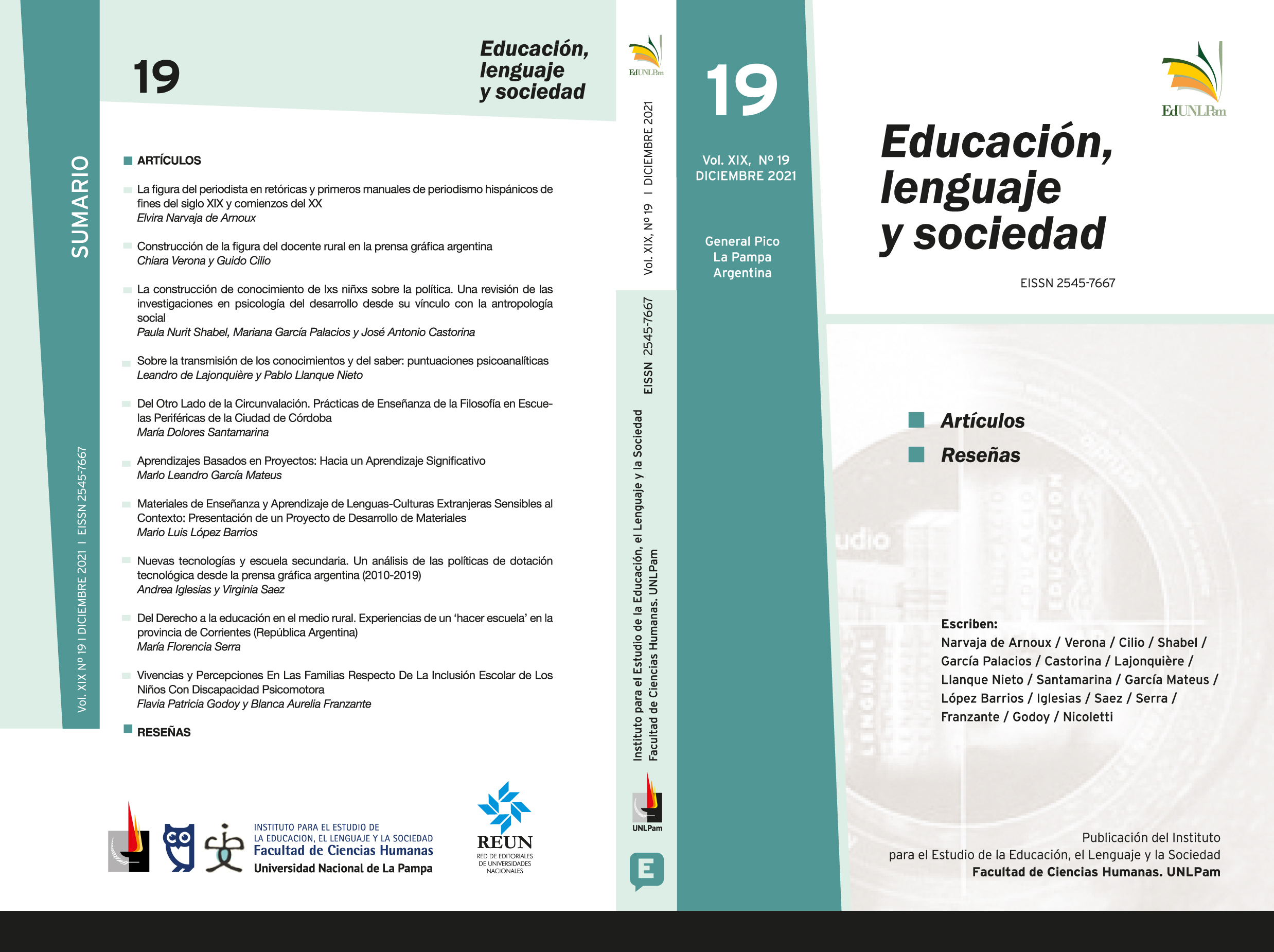Project-Based learning: towards meaningful learning
Keywords:
significant learning, projects, competenciesAbstract
This article is based on an investigation that was oriented to verify by means of Project-Based Learning (PBL) if the cognitive competencies in the areas of Math, Language, and Natural Science of students in 4th and 5th grades of primary school Rural Medio Centro Mojón, Colombia would improve (students with the lowest averages: cycle 2, Tuesday Tests), from dynamic processes that pointed to the development of meaningful learnings, leaving aside the traditional school.
In turn, the cognitive process was closely related to the development and promotion of soft skills (teamwork, empathy, resilience) in such a way that it worked under a social-constructivist approach, aiming at a holistic teaching process.
The mentioned research is framed within the hypothetical deductive method, starting from the observation of the results of cycle 2, taking as references the following hypotheses:
1. Project-Based Learning (PBL) improves learnings on Tuesdays Tests designed and evaluated by Milton Ochoa.
2. The results obtained (cycle 2, Tuesday Tests) by the students of 4th and 5th of primary education are the product of traditionalist methodologies.
3. Project-Based Learning (PBL) strengthens the results obtained in the subjects of Mathematics, Language and Natural Sciences.
In that regard, satisfactory conclusions were obtained, since they were students with lowest performance, which required greater commitment from the members of the educational community: teachers, students and parents.
Finally, the Milton Ochoa platform was used as an element of data analysis, through which significant progress in learning related to mathematical reasoning, reading comprehension, and living environments, among others, are shown.






21.png)







